

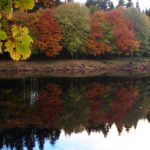
The well-known geneticist Francis Collins is in the habit of breaking into song on special occasions. The only other person I have known to sing during a science-faith presentation is environmental scientist Calvin (Cal) DeWitt. At the 2007 conference of Christians in Science and the ASA in Edinburgh, DeWitt concluded his talk by leading us […]
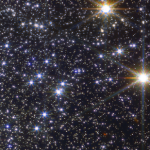
Show me a church’s songs and I’ll show you their theology. — Gordon Fee, Professor Emeritus, Regent College, Vancouver, Canada. Science may be sermonised in the classroom but we embody it in the field and the lab. Likewise, our Christian formation may be sermonised from the pulpit but we embody it in our participative song. […]

COP26 was totally different to any other conference I have attended. I was excited to interact with policy makers, scientists from different fields, companies, NGOs, and protesters in a single event. I was there to focus on technical discussions, but was truly impressed with the breadth of topics and opinions. This meeting came at a […]

As I write, volunteers from a community trust are distributing food parcels to people who have been deprived of their usual ways of earning an income during the lockdown in Mutare, the fourth largest city in Zimbabwe. I became involved in raising money for this initiative a week ago, and saw videos from the first […]
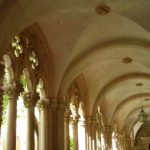
For Christians, science can enhance our worship, both individual and collective. CS Lewis wrote that worship completes our enjoyment of something,[i] and enjoyment of creation has always played a part in fostering worship. Monasteries and retreat houses often include open spaces or gardens where people can draw near to God through being surrounded by nature, […]

Antarctica reminds me more than anything of the hidden artwork in medieval cathedrals created by sculptors and painters to the greater glory of God. One is unaccustomedly hypersensitive here to the act of Creation. Elsewhere on earth, man is the most successful mammal: in Antarctica, wonderfully, he has only a precarious toehold. Sir Peter Maxwell […]
Ruth Bancewicz Originally published on Science and Belief. Reproduced here by permission of the author. Antarctica reminds me more than anything of the hidden artwork in medieval cathedrals created by sculptors and painters to the greater glory of God. One is unaccustomedly hypersensitive here to the act of Creation. Elsewhere on earth, man is the […]
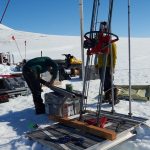
Joanne is studying the mighty Thwaite’s glacier in Antarctica. She drills down into the ice, collecting rock samples for laboratory analysis. Her team will run tests that tell them when the rocks were last exposed to air, providing some clues about how the ice sheet has expanded and contracted over the centuries. Ultimately they […]
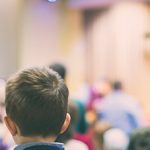
The best way to introduce your whole congregation to the benefits of engaging well with science is to do something in a Sunday service. Through whole-person interaction with the topic including songs, prayers, liturgy and learning, you can demonstrate what it looks like to explore the wonders of creation as revealed by science, encourage the […]
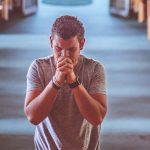
I once visited a school to help give a lesson on science and religion to some older teenagers. One of the pupils had sadly passed away from cancer a few weeks before and his classmates asked, “How God could let this happen?” At one point they started to debate angrily, asking how someone could believe […]
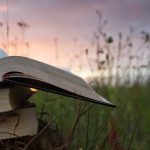
As a child Rosalind Picard, now a Professor in Computing Science at MIT, was encouraged by a neighbour to read the Bible – starting with the book of Proverbs. She expected to encounter fantastical stories, but found it profoundly wise. She went on to read the whole Bible, and found herself changing in response to […]
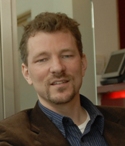
David C. Lahti is an Assistant Professor of Biology and the Undergraduate Research Coordinator at Queens College, City University of New York, where he runs a Behavior & Evolution laboratory focusing mainly on learned behavior in birds and humans. Prof. Lahti received a BS in biology and history from Gordon College. He received a PhD […]

My kids love Winnie the Pooh. They love to parade around our flat and sing, “The wonderful thing about Tiggers is Tiggers are wonderful things. Their tops are made of rubber, their bottoms are made of springs!” It’s a song that Tigger the tiger sings in the Disney film Winnie the Pooh and the Blustery […]

How can a Christian community partnered with social cognitive neuroscience dramatically affect someone’s life? Valerie had recently moved to our city for a job. She didn’t have any family in town and knew only a couple of co-workers. After a few weeks, she found herself growing depressed, and irritable. As a single girl, she thought […]
The Faraday Institute at the Cambridge Science Festival “With events from astronomy to zoology, the 2017 Cambridge Science Festival welcomes everyone to explore, discuss and debate Cambridge Science through talks, hands-on activities performances, exhibitions and films.” This year the theme is ‘getting personal’, looking at health and disease, our place in the world and our impact on the environment in which we live. We are delighted to have a presence at four events at this year’s University of Cambridge Science Festival. Monday 13 March: 4:00pm – 6:00pm Exhibition Showcase St John’s College Old Divinity School, All Saints Passage, CB2 1TP Interested in the Big Questions of life, purpose and meaning? Meet the team from the Faraday Institute and explore the interaction of science and religion, from AI and identity; genome modification and human dignity; to the wonders of the living world. More information available here Screening of a recording of the play “The God Particle” Monday 13 March: 6:30pm – 8:30pm St John’s College Old Divinity School, Main Lecture Theatre, All Saints Passage, CB2 1TP A scientist and a vicar walk into a bar. Joining forces to solve a perplexing mystery. They discover the real meaning of faith, knowledge, love and the importance of keeping an open mind. Quote: The God Particle is a romantic comedy with a hint of sci-fi from award-winning co-writer of BBC1’s Miranda, BBC3’s Bluestone 42 and Radio 4’s Another Case of Milton Jones. It’s deep, smart, and very funny. “…moments of great hilarity… quite simply a show that just works.” **** Three Weeks, Edinburgh Fringe Filmed at a performance of the play in front of a live audience at The Merlin Theatre in Frome, this screening will be followed by a panel discussion including Director James Cary, Vicar and scientist Canon Victoria Johnson, philosopher of physics Revd Dr Shaun Henson and theologian and philosopher Jamie Boulding. This is a free event and booking is essential. Sunday 19 March: 5:30pm – 6:30pm Science Festival Choral Evensong University Church, Great St Mary’s Senate House Hill, CB2 3PQ A traditional service of Choral Evensong according to the Book of Common Prayer in the University Church, with a visiting preacher, to celebrate the Science Festival. The speaker will be Revd Dr Roger Abbott, Research Associate at the Faraday Institute, who will discuss the cultural and religious impacts of natural disasters. More information here Saturday 25 March: 10:00am – 4:00pm Open House on Science and Religion Merton Hall Farmhouse, JJ Thompson Avenue, CB3 0FD Visit the University Multi-Faith Chaplaincy Centre and meet staff from the Faraday Institute for Science and Religion, staff from the forthcoming Ely Science Festival, and Muslim friends who are interested in the interface between Islam and Science. Further details here.
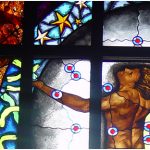
At the beginning of this piece I mentioned my growing realisation of the size of the scientist’s task. The seeming inexhaustibility of the created order can be overwhelming, but many see this as something positive. There is so much more to explore. As the Jesuit philosopher Enrico Cantore has said, the mystery of the universe […]
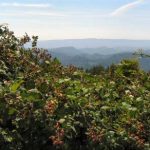
Earth’s crammed with heaven, And every common bush afire with God; But only he who sees, takes off his shoes, The rest sit round it and pluck blackberries… Elizabeth Barrett Browning, Aurora Leigh This fabulous quote was used by the former Archbishop of Canterbury Donald Coggan in his commentary on Psalm 148 (BRF/Lion, 2003). Psalm […]
On 17th March, 2008, The Faraday Institute Director interviewed Dr Francis Collins on behalf of the magazine Third Way. The interview was published in June 2008 in a shorter form and the full transcript is provided below. In 1993, Dr Collins was invited to succeed James Watson as director of the National Center for Human […]